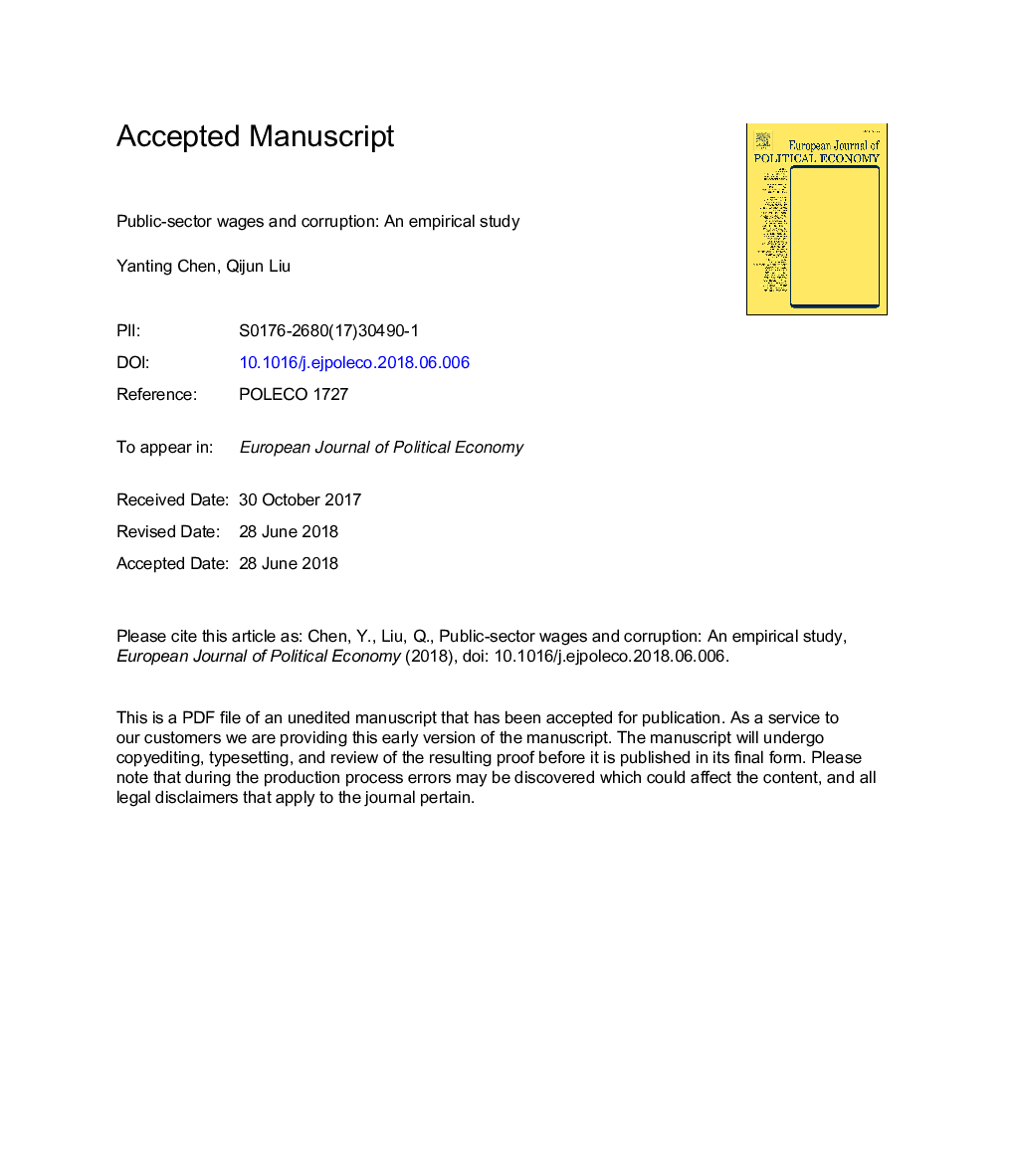| Article ID | Journal | Published Year | Pages | File Type |
|---|---|---|---|---|
| 11016162 | European Journal of Political Economy | 2018 | 33 Pages |
Abstract
An important public-policy question is whether public-sector wages can be used to deter corruption. We study the relation between public-sector wages and corruption in China. Our measure of corruption is the value of bribes obtained by government officials as reported in court proceedings. The data cover the period 1985 to 2014. We hypothesize that the public-sector wage is a reference point for bribe payers and bribe takers in determining the value of bribes, and that external wage opportunities for comparison with public-sector wages, as proposed by the fair-wage hypothesis, are not required to determine the relation between public-sector wages and corruption. Our empirical estimates confirm our hypothesis. We find no consistent support for the fair-wage hypothesis but a systematic U-shaped relation between the public-sector wage and corruption measured as the value of bribes. We conclude that 'carrots' of higher public-sector wages reduce corruption when the public-sector wage is low, but, when the public-sector wage is high, 'sticks' rather than carrots seem to be required to deter corruption.
Keywords
Related Topics
Social Sciences and Humanities
Economics, Econometrics and Finance
Economics and Econometrics
Authors
Yanting Chen, Qijun Liu,
